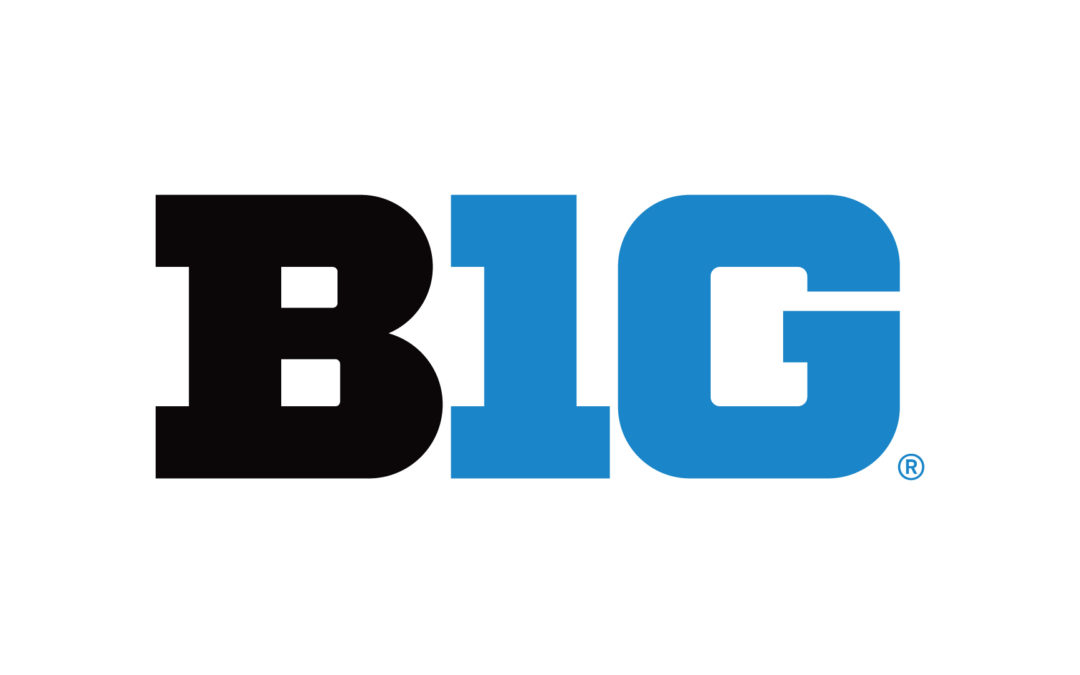The Big Ten will kick off its football season the weekend of Oct. 24 after the league’s presidents and chancellors unanimously voted to resume competition, citing daily testing capabilities and a stronger confidence in the latest medical information, the conference announced Wednesday morning.
The league will attempt to play eight games in eight weeks, leaving no wiggle room during the coronavirus pandemic before the Dec. 19 conference championship, but it would complete its season before the Dec. 20 Selection Day for the College Football Playoff. Fans are not expected at Big Ten games, which will be held on campus throughout the season.
A full Big Ten football schedule will not be released Wednesday, according to a source.
The Big Ten on Aug. 11 initially postponed its fall sports seasons, including football, because of concerns about the coronavirus pandemic. The presidents and chancellors voted 11-3 to postpone, with only Nebraska, Ohio State and Iowa electing to proceed, sources said. League bylaws required at least 60% of presidents and chancellors to approve a return of the fall season.
Following the postponement, Big Ten commissioner Kevin Warren formed a return to competition task force, which this past weekend presented to the presidents and chancellors and reviewed daily antigen testing, enhanced cardiac screening and a data-driven approach to make decisions about practices and competition.
The Big Ten’s daily rapid testing program will begin Sept. 30 on all 14 campuses. Test results must be completed and recorded prior to each practice or game. Student-athletes who test positive for the coronavirus through point of contact (POC) daily testing would require a polymerase chain reaction (PCR) test to confirm the result of the POC test. Each Big Ten team will designate a chief infection officer to report data about testing to the league, which will make decisions about practice and competition based on team positivity rate and population positivity rate.
Football players who test positive for COVID-19 must wait at least 21 days to return to competition, as they will undergo “comprehensive cardiac testing” before being cleared by a cardiologist designated by each university primarily for that purpose. Concerns about myocarditis, an inflammation of the heart muscle caused by viral infections like COVID-19, significantly contributed to the Big Ten’s initial decision to postpone the fall football season.
The Big Ten will use a color-coded system — green, orange and red — for both team positivity rates and population positivity rates.
If the team’s positivity rate exceeds 5% or the population’s positivity rate exceeds 7.5%, the team must pause practice and competition for at least seven days. If the team’s positive rate is between 2% to 5% or the population’s positivity rate is between 3.5% to 7.5%, the team “must proceed with caution and enhance COVID-19 prevention.”
“Everyone associated with the Big Ten should be very proud of the groundbreaking steps that are now being taken to better protect the health and safety of the student-athletes and surrounding communities,” Dr. Jim Borchers, head team physician at Ohio State and co-chair of the return to competition task force’s medical subcommittee, said in a prepared statement. “The data we are going to collect from testing and the cardiac registry will provide major contributions for all 14 Big Ten institutions as they study COVID-19 and attempt to mitigate the spread of the disease among wider communities.”
All 14 Big Ten presidents and chancellors heard Sunday from the medical subcommittee, which presented to a group of eight presidents and chancellors on Saturday. The subcommittee outlined at least four rapid response antigen testing options that could allow Big Ten teams to test daily for COVID-19 and significantly decrease the amount of necessary contact tracing, a significant concern for several league schools because of local public health regulations.
The Big Ten’s initial postponement and the process around it prompted strong criticism of Warren and the league, as coaches, administrators, players, parents and politicians repeatedly questioned why the conference was not playing when others chose to do so. Several parents of Big Ten players protested the decision Aug. 21 outside league headquarters in Rosemont, Illinois, and subsequent parent-led protests took place at Ohio State and Michigan. Warren released an open letter to the conference community stating that the vote by the Big Ten Council of Presidents and Chancellors was “overwhelmingly in support of postponing fall sports and will not be revisited.”





